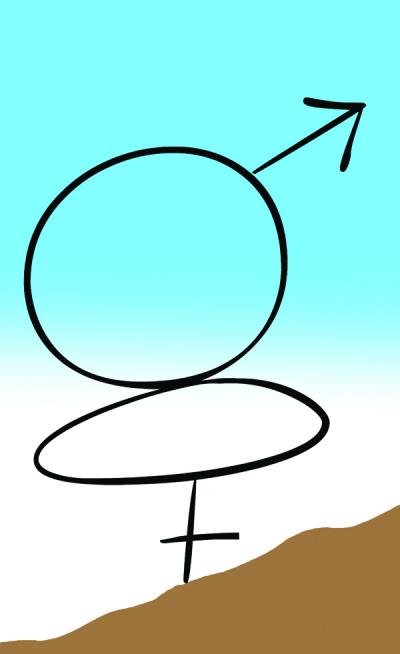Universities are important sites of knowledge production and distribution. They can also be important sites of resistance and dissent. In short, universities constitute a space where alternative views and readings of societal issues should be encouraged. At a time when knowledge is being increasingly packaged and commodified, awash with hegemonic discourses, it becomes difficult to develop any form of critical thinking whatsoever. In this context, the pieces below are rather refreshing and provide some hope particularly at a time when intellectuals have almost given up on their role of agents of transformation and denouncers of social injustice. Some female students of UOM have chosen to interrogate Mauritian patriarchy. The themes they have opted for are quite diverse. These include: women in politics, emancipation of women and the labour market, womens portrayal in the media and advertising, the ethnicisation of Mauritian politics and gender inclusive electoral reforms, ‘war’ in the home and ‘women soldiers’, the lack of gender disaggregated data, teenage pregnancy-fatherhood for an emotionally balanced nation. In discussing these themes, the complexity of unequal power relations as well as the different forms of gender inequality are highlighted. The expression of these views may have been triggered by some declarations made in the press recently. In fact one of the students Yogeeta Pultoo speaks directly to this and reminds us of the pervasiveness of gender inequality. Christine Lagarde, Director of the IMF, in her recent address on the occasion of International women’s day, warns of the danger of becoming complacent in the fight for equal rights for men and women. She adds that all forms of gender inequality impact on the economy effectively. Michelle Bachelet, Executive Director of UNWomen also highlights the pertinence of constantly and systematically addressing gender inequality.Women continue to face discriminations in all walks of life and when they hear women at the top arguing that gender and gender inequality are things of the past, they get revolted. The expectation is that those women rising to the top will assist in uncovering and dealing with the diverse patterns of gender inequality prevailing in the country rather than shuffling the difficulties under the carpet to then say that there is no problem. The students’ reflections highlight the insidious nature of gender inequality in the country.These views are most timely and pertinent. The world has experienced a financial and currency crisis with an increasing severity of widespread economic and social repercussions. Mauritius is not spared. But no safety nets can fully replace the security provided by an economy running at full employment, with each unit of the country’s human capital optimized. No welfare system can give back the dignity that one gets from work and income.In the context of the debates around the ‘development agenda-post 2015, we Mauritians seem to think that we are doing quite well on most of the MDGs but insufficient attention is paid to MDG goal 3 that of gender inequality. The latter is the one making the least progress and given the crosscutting nature of gender, it will more than likely impact negatively on other indicators and vice versa in the long run. This is perhaps why Mauritius’s ranking on the Global Gender Gap index has again fallen a few places this year.In her book ‘so that flowers may boom’, Shakuntala Hawoldar, speaks of patriarchy as entrenched in the Mauritian bone marrow. It is perhaps time that this bone marrow be altered. The young women’s articles are a good starting point!
UOM students scrutinizing gender inequality
- Publicité -
EN CONTINU ↻



